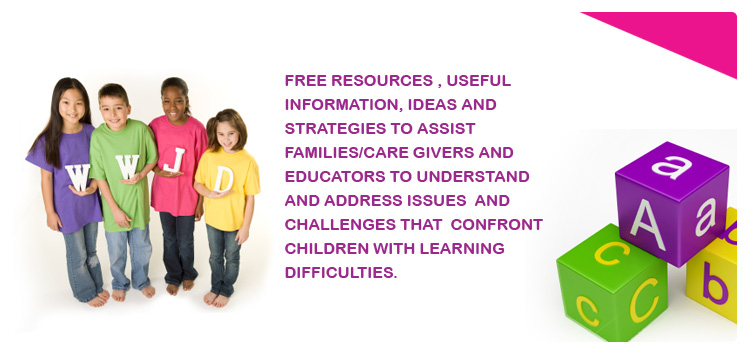

Spelling
Attempting to spell through memorising words and the letters works when it involves the most commonly used everyday short words but it fails when there are lots of letters in longer words. It is also impossible for most of us to memorise so many words (Wikipedia estimates we have about 7464 commonly used words) without having some other techniques and strategies to use. Other influences on spelling come from the books children use; the use of American spelling with words such as color and skool.

The ability to spell words is further hindered when a child has to write them as well. I have noticed many children who are able to articulate the letters to spell a word but falter when they have to multi-task even more by writing as well.
It seems the hardest thing for children with learning difficulties is to get the message from their brain to their hand!
Teaching children a diverse range of strategies (in a multi-sensory environment) as well as the actual knowledge needed to be able to spell, gives them the opportunity to find ways that work best for them and their own individual style of learning. Also by giving them Number one options, they experience almost instant success which leads to a self-belief that they can do it.
I call it a “tool box” of knowledge that they can use in the classroom.
There are several stages to spelling success and it is important to understand that even though a child might be able to read words, it does not mean they can spell them.
Furthermore, the “I will just use Spellcheck” option will not work if the child has no way of working out which option is correct or how to get that option in the first place because Spellcheck has no idea what the word is that they are trying to spell.
Even in this world of technology and information available at the tip of a finger, we all still need to spell words to a certain degree of proficiency
Children need to believe that they can succeed if they put their minds to it.
© Playground Sound
This website has been made possible thanks to Layne Beachley’s “Aim for the Stars” Foundation.